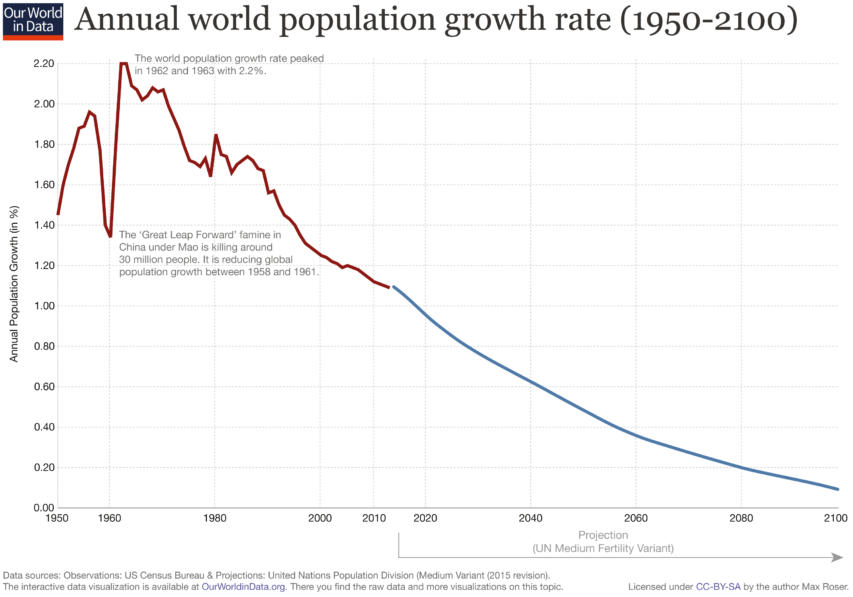Physicists used to be serious and bloody minded people who understood reality by doing experiments. Somehow this sort of bloody minded seriousness has faded out into a tower of wanking theorists who only occasionally have anything to do with actual matter. I trace the disease to the rise of the “meritocracy” out of cow colleges in the 1960s. The post WW2 neoliberal idea was that geniuses like Einstein could be mass produced out of peasants using agricultural schools. The reality is, the peasants are still peasants, and the total number of Einsteins in the world, or even merely serious thinkers about physics is probably something like a fixed number. It’s really easy, though, to create a bunch of crackpot narcissists who have the egos of Einstein without the exceptional work output. All you need to do there is teach them how to do some impressive looking mathematical Cargo Cult science, and keep their “results” away from any practical men doing experiments.
The manufacture of a large caste of such boobs has made any real progress in physics impossible without killing off a few generations of them. The vast, looming, important questions of physics; the kinds that a once in a lifetime physicist might answer — those haven’t budged since the early 60s. John Horgan wrote a book observing that science (physics in particular) has pretty much ended any observable forward progress since the time of cow collitches. He also noticed that instead of making progress down fruitful lanes or improving detailed knowledge of important areas, most develop enthusiasms for the latest non-experimental wank fest; complexity theory, network theory, noodle theory. He thinks it’s because it’s too difficult to make further progress. I think it’s because the craft is now overrun with corrupt welfare queens who are play-acting cargo cultists.
Physicists worthy of the name are freebooters; Vikings of the Mind, intellectual adventurers who torture nature into giving up its secrets and risk their reputation in the real world. Modern physicists are … careerist ding dongs who grub out a meagre living sucking on the government teat, working their social networks, giving their friends reach arounds and doing PR to make themselves look like they’re working on something important. It is terrible and sad what happened to the king of sciences. While there are honest and productive physicists, the mainstream of it is lost, possibly forever to a caste of grifters and apple polishing dingbats.
Scott Locklin, “Quantum computing as a field is obvious bullshit”, Locklin on Science, 2019-01-15.
January 14, 2022
QotD: The stagnant field of theoretical physics
November 24, 2021
QotD: Homeopathy
The people who wanted money to pay for homeopathic cancer treatment were also, considered as a group, into every other form of quackery you can imagine. Of the 220 campaigners surveyed, 85 mentioned pursuing some kind of dietary anti-cancer magic. Sixty-eight were gobbling nutritional or herbal supplements. Thirty were megadosing with vitamin C. The list goes on, at astonishing length, past acupuncture all the way to magnets. It seems that if you believe in homeopathy, it is possible for you to believe in anything.
Colby Cosh, “Two researchers fashion a tapestry of GoFundMe desperation”, National Post, 2019-01-09.
November 12, 2021
QotD: The looming quantum computing apocalypse
We’re reaching peak quantum computing hyperbole. According to a dimwit at the Atlantic, quantum computing will end free will. According to another one at Forbes, “the quantum computing apocalypse is immanent.” Rachel Gutman and Schlomo Dolev know about as much about quantum computing as I do about 12th century Talmudic studies, which is to say, absolutely nothing. They, however, think they know smart people who tell them that this is important: they’ve achieved the perfect human informational centipede. This is unquestionably the right time to go short.
Even the national academy of sciences has taken note that there might be a problem here. They put together 13 actual quantum computing experts who poured cold water on all the hype. They wrote a 200 page review article on the topic, pointing out that even with the most optimistic projections, RSA is safe for another couple of decades, and that there are huge gaps on our knowledge of how to build anything usefully quantum computing. And of course, they also pointed out if QC doesn’t start solving some problems which are interesting to … somebody, the funding is very likely to dry up. Ha, ha; yes, I’ll have some pepper on that steak.
Scott Locklin, “Quantum computing as a field is obvious bullshit”, Locklin on Science, 2019-01-15.
September 5, 2021
The official science advisors themselves are making it much harder to “trust the science”
In the very last “Weekly Dispatch” from The Line that I’ll be able to read and share (because those posts are going behind the paywall from next week onward), the difficulty in “trusting the science” is made very clear indeed:
A friend of The Line who lives in Ontario sent us a delightfully snippy little text this week attached to the Ontario Science Table’s latest COVID-19 modelling efforts.
“Do you have any idea what would happen if I walked into a meeting with a range from 500-9000, and expected people to take me seriously?” she wrote. “I want to believe you scientists, but you are making it impossible to have any faith in your work.”
She’s right. A range this wide is both useless and unfalsifiable. No government can look at this graph and decide what the best course of action ought to be, and no individual can look at this data and make reasonable decisions about how to go about his or her life. If you want to see catastrophic health-care collapse, it’s there at the top end, and if you want to see “pandemic is over” signal, it’s there near the bottom.
The Science Table might as well just put a giant ¯\_(ツ)_/¯ on the x/y axis and call it in. These guys have no goddamn clue what is going to happen, and they’d be better off just admitting as much.
The Public Health Agency of Canada’s modelling was equally pointless. It’s predicting another literal off-the-chart case spike by October; 15,000 cases per day, which is almost a third higher than the peak daily case rate of the second wave. Somehow, this will happen despite the fact that more than 70 per cent of the eligible population is now fully vaccinated.
We at The Line are looking forward to October. The fall will bring with crunchy leaves, warm lattes, and the ability to compare these models to reality; but in the meantime, we have to ask, what the hell is the purpose of these things?
If public-health types are trying to scare people into getting vaccinated and maintaining distance, we’re sorry to break this to you, but that’s not going to work anymore. Those who can be scared into changing their behaviour have done so already. And those who refuse to be scared are going to look at another set of unfalsifiable modelling predictions and roll their eyes.
We cannot say this enough: COVID-19 is now an endemic disease. We’re stuck with it. It’s not going away. We are going to experience another wave of cases. Hospitalizations and ICU admissions will rise. Our mortality rate will also increase — although these latter metrics will rise at nowhere near the rate as previous waves thanks to vaccines. Delta will pass. Then another variant will pop up. And another after that. We can’t let ourselves be trapped on a Ferris wheel of restrictions and easing every time case numbers go up and down for a disease that may be with us for years. Eventually, we have to make our peace with the suck, return to some semblance of normal, and figure out how to live our lives in a sustainable and healthy way — albeit with this new way to get sick and die in them.
We have an 83 per cent first-dose vaccination rate among those who are eligible; vaccine mandates, passports, $100 gift cards, may, at best, add a few points to that total. We have reached the point where we are grasping at increasingly divisive policies to make ever more incremental gains — in short, the law of diminishing returns is beginning to kick in, as it always does. If our current vaccination, mortality, and hospitalization rates are is not good enough to call time on this pandemic then what, exactly, is the exit strategy? And just from a pure communications perspective, how does releasing another round of bonkers off-the-charts modelling serve that end?
August 5, 2021
Sarah Hoyt on “scientific government”
In the latest Libertarian Enterprise (which came out a few days ago, but I’ve been very busy), Sarah Hoyt outlines the genesis of the push for “scientific government” to save us all from ourselves and set right all the ills of the world:
Look, guys, since the middle of the 19th century, the idea of “scientific government” has been running around with pants on its head screaming insults at passerbys.
I like to say we’re still suffering from the consequences of WWI, but things were if not terminal very ill before then. Kings and emperors and Lord knows what else had got the idea of “science” and “permanent progress” stuck in their pin-like heads, which frankly couldn’t retain much more than the correct fork. And there were pet “scientists” and philosophers (the distinction was sometimes arguable. I mean, after all while doing experiments on electricity the 18th century was also fascinated with astral projection and other such things, and made no distinction. And the 19th was not much better.)
By the 20th century with mechanics and the Industrial Revolution paying a dividend in lives saved and prosperity created, these men of “science” were sure that it was only a matter of time till humanity and its reactions, thoughts and governance were similarly under control. And in the twentieth they expected us to become like unto angels.
Now, is there science that saved lives and created the wealthiest society every in the 20th century. DUH. Who the hell is arguing it. Oh, wait, there’s an entire cohort of people denying it. Not so many in the US — I think it’s hard to tell the real thing from foreign idiots posing. But in any case a minuscule contingent — but in France I know there’s a ton of them. They’re running with the bit in their teeth against rationality (I swear to bog) and thought and science. And trying to rebuild the religion of the middle ages. I read them and shake my head.
You see, you have to separate rationality and science from what the government and experts TELL you is rationality and science.
Yes, I know that France built a “Temple to Reason” and you know what? That by itself tells you their revolution was self-copulating and not right in the head. But you don’t need to go that far. Anyone who says they’re “for science” and want equality of results among disparate humans is not reasonable. Or reasoning. Or rational. They are however for sure completely and frackingly insane.
But I do understand the temptation, because so much of what’s being sold as “science” in the schools is not science but the worn out dogmas of people too stupid to know science if it bit them in the fleshy part of the buttocks.
I mean, never mind 2020. Which … you know? Remember how the flu vanished? Turns out the rat bastards were using a test that diagnosed flu as COVID. No, seriously. Malice or stupidity? I don’t know. And neither do you. Probably yes in most cases, though a lot of people have a ton of “learned stupidity”.
Even before 2020 a lot of our ideas on how things worked were lies, particularly those that hinged on or supported the leftist ideas of human kind. Things like Zimbardo’s (Is he dead yet? I need to know when to mark myself safe from being kidnapped by Zimbardo for crazy experiments. No, he really did that.) prisoner experiments; or the rat habitat experiments that supposedly showed that overpopulation had all sorts of bad effects, and therefore we should stop having kids. Turns out those effects are from the loss of social role. Which honestly, anyone who has looked at a conquered country could tell them. Of course, anyone who had looked at mice would also know they’re not humans, but never mind that. […] In fact, practically everything we think we know about psychology or sociology is likely to be a load of crap, if not outright faked.
And history, which is not really a science. Oh. Dear. Lord. Like, you know, the early form of internationalism, with international supply chains and empires caused WWI and … nationalism was blamed for it. Makes perfect sense … in hell.
In fact all this “science” stuff needs to be judged on one thing only: Does it make human lives better/save them? Or is it the astral projection of economics, sociology and psychology? By their fruits, etc.
July 13, 2021
July 10, 2021
The early growth of “Dianetics”, later known as Scientology
In Quillette, David S. Wills outlines the early years of L. Ron Hubbard’s quasi-religion that eventually turned into a full-fledged cult:
In the 21st century, Scientology has become a synonym for “cult”. Thanks to an array of investigative exposés and testimony from former members, few people in the Western world are unaware of at least some of the Church’s fantastical beliefs and more alarming behaviours. Sixty years ago, however, it was viewed quite differently. Scientology — or dianetics, as it was originally known — was an appealing idea to many intellectuals and creatives at a time when the world was rapidly changing and notions that had once been taken for granted were suddenly being tossed out of the window. In science, art, and philosophy, accepted norms were being turned on their heads, and in the 1950s and ’60s, L. Ron Hubbard’s ideas — peddled as an alternative to psychiatry — fit quite nicely among the emerging doctrines dreamed up by his contemporary thinkers.
Indeed, the original concepts that launched Hubbard’s movement were not as outrageous as those that define it today. Among these, the idea of “engrams” and the “reactive mind” were perhaps the most appealing. Hubbard theorised that humans are marked by unconscious traumas that essentially pre-determine “aberrant” behaviour. Naturally, he claimed that his organisation held the key to removing these traumas and freeing people from a great deal of suffering. Stripped down to its fundamentals, dianetics seemed to be no more implausible than the strange new ideas espoused by Freud and Jung, or even those previously espoused by Nietzsche.
Of course, there were always oddball beliefs bundled in as well, and as the years went by, these became more prominent. Hubbard — a science fiction author prior to his metamorphosis into quasi-religious guru — enjoyed adding new elements of fantasy to his central theories, layering sci-fi storylines on top of one another until his movement had become an extravagant sort of space opera. The more obvious cult-like elements would emerge in due course: charging adherents for advancement in the organisation; trapping them with manipulation and blackmail; the development of esoteric jargon known as “Scientologese” that made it almost impossible for real communication to take place between members and outsiders; and shocking campaigns of harassment against critics and apostates.
In the early days, however, none of this was particularly obvious. Hard as it is to believe now, many intelligent people were once drawn to Scientology out of an overabundance of curiosity, and its absurdities were generally perceived as harmless, affable eccentricities. Among those lured into the fold of this mysterious new organisation were two of the most important authors of the 20th century: Aldous Huxley and William S. Burroughs. Although Hubbard’s own novels elicit little more than derision from critics, his ideas wormed their way into some very influential books and left an indelible mark on American literature.
When people first hear about Huxley’s and Burroughs’s interest in Scientology, they typically express some degree of shock and/or scepticism. These men were highly intelligent thinkers famous for their insightful criticisms of the dominant culture. And both wrote extensively on the topic of coercion — Huxley was keenly aware of how humans could be manipulated into subservience by technodictators, and Burroughs was fascinated by the idea that language could be employed for the purposes of mind control. How then could they have fallen for the very thing they critiqued?
July 8, 2021
The initial findings of our months-long dietary natural experiment
As we’ve all been told many, many times by the food nannies, access to fast food restaurants makes us fat. The food is too greasy, too salty, too tasty for our feeble wills to fight so we just engorge ourselves on those bad calories. We eat too much fast food and we get fat. Case closed. Well, that’s what we’ve been told. Our recent fast food deprivation diets say something else again:

“Camden Fast Food” by It’s No Game is licensed under CC BY 2.0
OK, well, we’ve just had a grand experiment, haven’t we? Peeps haven’t been able to queue at Maccy D’s to get their greaseburger. People have had to – and have had time to – buy actual food and then prepare it for themselves at home.
Which is something that does rather kill the case about those burgers. Because what has been happening is that we’ve been – in the absence of greaseburgers – been eating more.
Using data on millions of food and non-alcoholic drink purchases from shops, takeaways and restaurants, the study found that the pandemic led to calories from restaurant meals falling to zero during the UK’s first national lockdown. That increased somewhat over the summer and declined again as restrictions in the hospitality sector were reintroduced in the autumn.
However, this was more than offset by a large increase in calories from takeaways, which peaked at more than double the usual levels in the UK’s second national lockdown in November 2020.
Overall, people increased their calories from raw ingredients by more than those from ready-to-eat meals and snacks and treats, with the pandemic leading to a shift in the balance of calories towards foods that required home preparation.
It’s that last paragraph that’s important. More home food preparation was being done from raw ingredients. And yet calorie consumption rose.
The report said the most plausible explanation for the sustained increase over the pandemic was higher consumption rather than changes in household composition, food waste or stocking up.
The study is specific to Britain, but it’s highly likely that the same results will be observed in Canada, the United States, Australia, and many other places. But I wouldn’t expect it will be given much coverage, like so much these days that contravenes the messaging that our dying media all seem to prefer to spread.
June 18, 2021
Feeding “the masses”
Sarah Hoyt looked at the perennial question “Dude, where’s my (flying) car?” and the even more relevant to most women “Where’s my automated house?”:
The cry of my generation, for years now, has been: “Dude, where’s my flying car?”
My friend Jeff Greason is fond of explaining that as an engineering problem, a flying car is no issue at all. It is as a legal problem that flying cars get interesting, because of course the FAA won’t let such a thing exist without clutching it madly and distorting it with its hands made of bureaucracy and crazy. (Okay, he doesn’t put it that way, but I do.)
[…]
But in all this, I have to say: Dude, where’s my automated house?
It was fifteen years ago or so, while out at lunch with an older writer friend, that she said “We always thought that when it came to this time, there would be communal lunch rooms and cafeterias that would do all the cooking so women would be free to work.”
I didn’t say anything. I knew our politics weren’t congruent, but really the only societies that managed that “Cafeterias, where everyone eats” were the most totalitarian ones, and that food was nothing you wanted to eat. If there was food. Because the only way to feed everyone industrial style is to take away their right to choose how to feed themselves and what to eat. And that, over an entire nation, would be a nightmare. Consider the eighties, when the funny critters decided that we should all live on a Russian Peasant diet of carbs, carbs and more carbs. Potatoes were healthy and good for you, and you should live on them.
It will surprise you to know – not — that just as with the mask idiocy, no study of any kind supports feeding the population on mostly vegetables, much less starches. What those whole “recommendations” were based on was “diet for a small planet” and the bureaucrats invincible ignorance, stupidity and assumption of their own intelligence and superiority. I.e. most of what they knew — that population was exploding, that people would soon be starving, that growing vegetables is less taxing on the environment and produces more calories than growing animals to eat — just wasn’t so. But they “knew” and by gum were going to force everyone to follow “the plan”. (BTW one of the ways you know that Q-Anon is in fact a black ops operation from the other side; no one on the right in this country trusts a plan, much less one that can’t be shared or discussed.) Then the complete idiots were shocked, surprised, nay, astonished when their proposed diet led to an “epidemic of obesity” and diabetes. Even though anyone who suffered through the peasant diet in communist countries, could have told the that’s where it would lead, and to both obesity and Mal-nutrition at once.
So, yeah, communal cafeterias are not a solution to anything.
My concern about the “automated house of the future” is nicely prefigured by the “wonders” of Big Tech surveillance devices we’ve voluntarily imported into our homes for the convenience, while awarding untold volumes of free data for the tech firms to market. Plus, the mindset that “you must be online at all times” that many/most of these devices require means you’re out of luck if your internet connection is a bit wobbly (looking at you, Rogers).
June 8, 2021
The utter failure of political leadership in most countries during the pandemic
Jay Currie runs through some of the many reasons our political leadership and their “expert class” advisors in most western countries were utter shit almost from the starting gun of the Wuhan Coronavirus pandemic:

“Covid 19 Masks” by baldeaglebluff is licensed under CC BY-SA 2.0
The first response of most of our political class was to doggedly claim to be following the science, turn day to day decision making over to “public health experts”, follow the guidance of the WHO and the CDC – guidance which was, to be charitable, inconsistent – and to largely avoid questioning the experts. (Trump seemed to make some attempt to raise questions but made little headway in the face of his own public health bureaucracy.)
“Wipe everything” (which the CDC now concedes is pointless because the virus is rarely, if ever, transmitted by contact, “wash your hands” (good advice at any time), “social distance” (hilarious when in effect outdoors where there is next to no transmission), “walk this way” in the essential grocery and liquor stores, “wear a mask”, “wear two masks”, “stay home” (logical for two weeks, insane for six months), “curfew” (no known benefit, Quebec ended up being under curfew for five months), “no indoor dining” (despite next to no evidence that restaurants were significant sources of infection), “don’t travel” (with a vast list of exceptions), “don’t gather outdoors (unless BLM protest)” (ignoring entirely that the virus rarely spreads outdoors): it was all COVID theatre and, to paraphrase Dr. Bonnie Henry, “There’s no science to it.”
What the politicians did was simply to panic. They abdicated their responsibility to lead to “experts” who seemed to all be reading from the same “mass lockdown, masks everywhere, hang on for the vaccine, there is no treatment” script.
The key political failure was the acceptance of the “there is no treatment” story. Back in February/March 2020 there were suggestions that there might well be treatments of some sort. HCQ was trotted out and, partially because Trump mentioned it and partially because of very badly designed studies, dismissed. The very idea of a COVID treatment regime was, essentially, made illegal in Canada and much of the United States.
The idea of boosting immunity with things like Vitamin D and C and a good long walk every day did not come up at most of the Public Health Officer’s briefings across Canada. And, again, not very well done studies were cited showing that “Vitamin D does not cure COVID”. A claim which was not being made. A healthy immune system, to which Vitamin D can contribute, most certainly does cure COVID in the vast majority of cases.
Citing privacy concerns, public health officials were unwilling to give many details as to who was dying of or with COVID. Age, co-morbidities, race, and the socio-economic status of the dying were disclosed reluctantly and long after the fact.
I don’t think most of this can be blamed on the public health officials. They had their jobs to do and, to a greater or lesser degree, managed to do them. They are hired to apply current best practices – often mandated on a world wide basis by the WHO – to the situation before them. Public Health officials are not expected to be imaginative nor innovative.
Imagination, leadership, thinking outside the proverbial box is what we elect politicians for.
But, hey! Doesn’t Justin wear cool socks? Totally worth flushing decades of economic growth down the toilet for those nice socks! Canada’s back! (Back to 1974, approximately.)
May 30, 2021
The Stanford Prison “Experiment”
In another of the anonymous book reviews at Scott Alexander’s Astral Codex Ten, a look at the infamous Stanford Prison Experiment:
The second most famous psychology experiment in history is the Stanford Prison experiment. Philip Zimbardo split a group of undergrads at random into prisoners and guards. The guards were left free to choose how they would manage the prisoners, and within days the whole thing had to be called off as it had descended into a sadistic torture camp. At least that’s how Zimbardo has described it for the last 50 years. In fact, everything I just said is completely false. The undergrads were not split at random — the scheme had actually been dreamt up by an undergrad called David Jaffe who had run a previous experiment himself on abusing prisoners in a fake jail. He was carefully placed into the guards group. Nor were the guards left to choose their methods, instead they were briefed by Zimbardo and Jaffe that the purpose of the experiment (for which they were being well renumerated) was to see how people cracked under pressure. The experiment would be a failure unless they could put the prisoners under terrible stress. Even Douglas Korpi’s prisoner breakdown on day two, which, captured on camera, became the cinematic face of the experiment, was a fake he put on after discovering he wouldn’t be able to spend the time in jail revising, and being told he would only be allowed to quit if he suffered some sort of serious mental or physical breakdown.
Despite the pressure from Zimbardo and Jaffe, two thirds of the guards refused to take part in sadistic games, and much to their frustration a third continued to treat the prisoners with kindness. Nonetheless when Zimbardo came to write up the experiment about the effects on the prisoners, he realised it would be a much more compelling story if he turned it on its head, and made it about the guards instead. The truth of guards carefully drilled to be sadistic was swept away with a lie of ordinary people spontaneously becoming cruel when dressed in a uniform and given a position of power.
For years no one replicated the experiment — given the results first time round it was thought unethical, but in 2001 the BBC in search of new reality television commissioned a repeat (turns out reality television runs to different ethics than the average psychology department). Now unlike normal reality TV they didn’t bother manipulating the participants to be at each other’s throats — there was no need, in days it was going to be a bloodbath.
The result is the four most boring hours of television ever recorded. Nothing happens. The guards sit around chatting. When tensions arise with the prisoners, they defuse them by talking to them nicely. On day 6 some prisoners escaped. They headed over to the guards’ canteen and all had a smoke together. On day 7 they voted in favour of turning the whole thing into a commune.
February 25, 2021
Malthusian cheerleaders
Barry Brownstein looks at some of the claims from Malthus onward about the imminent demise of humanity due to overpopulation and how that same concern keeps popping up again and again:
… James Lovelock advanced the Gaia hypothesis that Earth is one “self-regulating organism.” Lovelock forecasts the population of the Earth will fall to one billion from its current total of over seven billion people. Given Lovelock’s cheerfulness about such carnage, it is easy to see why Alan Hall, a senior analyst at The Socionomist, wonders whether “today’s drives to limit consumption and population” are ideologically related to the eugenics movement from the past century. In his essay “A Socionomic Study of Eugenics,” Hall writes in The Socionomist:
Circa 1900, influential intellectuals in Europe and the U.S. voiced concerns about uncontrolled procreation causing a supposed decline in the quality of human beings. Today, similar groups voice concerns about uncontrolled population growth and resource consumption causing a decline in the quality of the environment … Today’s green advocates brandish images of an overrun, dying planet.
Today, the Bill and Melinda Gates Foundation is working to aid the lives of children living “in extreme poverty.” In his book, Factfulness, the late professor of international health Hans Rosling, reports on critics of the Gates Foundation who reject such efforts. “The argument goes like this,” Rosling writes. “If you keep saving poor children, you’ll kill the planet by causing overpopulation.”
In the face of advocates for such beliefs, no wonder Hall asks us to reflect on whether we “will make the cut” if those seeking to cull humanity are successful.
Malthusian Doom
We’ve all heard the SparkNotes version of Malthusian predictions of doom caused by overpopulation. Malthus thought food production could not keep pace with population growth. In his 1798 “Essay on the Principle of Population,” Malthus anticipated the suffering that awaited humanity.
The power of population is so superior to the power in the earth to produce subsistence for man, that premature death must in some shape or other visit the human race. The vices of mankind are active and able ministers of depopulation. They are the precursors in the great army of destruction; and often finish the dreadful work themselves. But should they fail in this war of extermination, sickly seasons, epidemics, pestilence, and plague, advance in terrific array, and sweep off their thousands and ten thousands. Should success be still incomplete, gigantic inevitable famine stalks in the rear, and with one mighty blow levels the population with the food of the world.
Unlike Ehrlich and others, Malthus had reason to be a pessimist in his lifetime. If Malthus had been writing history or predicting the near future, he would not have been far from the mark.
Many of the predictions of overpopulation were based on estimates of population growth (especially in sub-Saharan Africa) which were far from accurate, and in every case we know of, increased economic well-being directly impacts population growth so as a country begins to get richer its population growth begins to slow down significantly (most first-world nations are already at or below population-replacement birthrates).
In their book, Empty Planet: The Shock of Global Population Decline, Darrell Bricker and John Ibbitson have startling facts for those who believe the population will continue to explode.
No, we are not going to keep adding bodies until the world is groaning at the weight of eleven billion of us and more; nine billion is probably closer to the truth, before the population starts to decline. No, fertility rates are not astronomically high in developing countries; many of them are at or below replacement rate. No, Africa is not a chronically impoverished continent doomed to forever grow its population while lacking the resources to sustain it; the continent is dynamic, its economies are in flux, and birth rates are falling rapidly. No, African Americans and Latino Americans are not overwhelming white America with their higher fertility rates. The fertility rates of all three groups have essentially converged.
Looking at current trends and expecting them to continue is what Hans Rosling calls “the straight line instinct.” That instinct often leads to false conclusions.
January 24, 2021
The dangers of depending on “experts”
David Warren considers the vastly expanded role of “experts” in our public discourse:
Having no degree in either field, I try not to write what will be contradicted by an expert. On the other hand, “expert” has become a murky concept. Once we had to distinguish only between demonstrated credible experts, and villains. Common sense could usually tell them apart. But with the growth of our “sophistication,” the category of villainy has been much expanded. We have a category of institutionally credentialled experts who aren’t exactly liars, but more like what Harry G. Frankfurt defined as “bullshitters.” They struggle to remain plausible, but are using their expertise to advance interested views. And, having such motives — in opposition to the plain pursuit of truth — they seek publicity, and angle to obtain it.
As Dr Frankfurt hinted, in his short philosophical treatise on this topic (On Bullshit, 2005), these can be, and usually are, more trouble than old-fashioned liars. For a real liar knows he is lying, and can be caught out. By comparison, the modern media expert avoids what is strictly checkable, not only to protect himself, but from indifference for truth. He is, according to me, the intellectual descendant of the mediæval Nominalists, adumbrating words, not realities. While less intelligent than his predecessors, he carries on the tradition of saying that something is true because he says so.
“Consensus science” is of this nature. In it, truth can be negotiated, or imposed. While the weather next Saturday will be known to the living, a prediction for much later in the century has no meaning. From the number of variables in play, I can tell you with certainty, that woke “climatologists” are talking bosh; and every signature on their consensus I may add to my list of persons to ignore. This is elementary stuff: and I do try to stick to what is elementary, and foreseeable.
The success rate, for elaborate predictions, remains, at this point in our history, zero-point-zero. But it is becoming so also for the present, and past. The Batflu, here, is current primary example. Owing to obvious manipulation, we cannot know much about its effects. In rough terms, we can know that they are exaggerated, because almost every expert has a vested interest in getting the numbers up, and those who disagree will be punished. The same is true for all the popular remedies, including such nonsense as mangle-wearing, and obsessive social distancing. No legitimate research lies behind either, so we must assume the purposes for various lockdown orders are not actually the Batflu.
December 30, 2020
This is why the word “unexpectedly” gets such a workout in media these days
David Warren on “unexpectedly” negative results from policies born of virtue-signalling “good intentions” by self-styled progressives:
The expression, “unintended consequences,” is a charitable dodge. It is what old-fashioned, polite, civic-minded people say about the fallout from progressive social policies. It implies that their authors have overlooked something, or made some innocent mistake. For unfortunately, the policies do the exact opposite of what was promised. Surely the “reformers” didn’t mean to force decent, reasonable people to do things that any decent, reasonable person would consider to be satanic. Yet somehow, that was the result.
By contrast, these reformers despise the tactics of the bourgeois. Rather than argue, they prefer to drown out their opponents with slogans. Rather than coherently reply, they characterize any asking questions as “fascist,” “misogynist,” “racist,” “hate criminals,” &c. Those who have exposed scandals are personally smeared, slandered, doxxed. This isn’t new. It is the way the Left has always “debated,” going back long before Lenin. Once they have the police working for them, opponents get the knock in the middle of the night.
There are, incidentally, two kinds of “reform,” corresponding to the two political persuasions. One happens without planning, and is an organic response to things no longer working properly. Try, in good faith, to make the old system work, and it will subtly change. The “problems” fix themselves, when they are allowed to. The other kind is “reform” according to a theory. A huge, mostly imaginary “problem” is created, so a “solution” may be imposed. Every tool must be applied, to get everyone onside for the task: fake news, fake science, fake history, and miscellaneous fakery. For as every godless person knows, “the end justifies the means.”
Luckier than most, raised in “liberal” environments, I was able to discern this from an early age. By chance I acquired many friends who were refugees from Communist (especially Soviet-occupied) countries. But it was not just that. Having been trained counter-culturally, by non-conformist “classically liberal” teachers, and also having learnt to read for myself, I was already fairly alert. The clincher for me was a native disposition, not only to think independently, but to resist being a putz. It was not in my nature to assume that the enemies of real liberalism (which requires honesty) had good intentions. Reason, and experiment, demonstrated that they had not.
For instance, I early realized that leftwing factions formed a Party of Privilege. Every policy they advanced favoured individuals with relatively more wealth and power, against individuals with less. Unions were a good example. They represented the better-paid. The labour laws they advocated were designed to exclude the young and the poor from labour-market competition. They secured the allegiance of thuggish union members through crassly self-interested schemes. They opposed legitimate rewards for labour; for skill and hard work. Instead they enforced universal mediocrity, and punished intelligent enterprise. Legitimate labour interests, once represented by cooperative and self-managing guilds, were replaced by the interests of (untalented) union organizers.
December 13, 2020
QotD: The statistical “Rule of Silicone Boobs”
If it’s sexy, it’s probably fake.
“Sexy” means “likely to get published in the New York Times and/or get the researcher on a TEDx stage”. Actual sexiness research is not “sexy” because it keeps running into inconvenient results like that rich and high-status men in their forties and skinny women in their early twenties tend to find each other very sexy. The only way to make a result like that “sexy” is to blame it on the patriarchy, and most psychologist aren’t that far gone (yet).
[…]
Anything counterintuitive is also sexy, and (according to Rule 2) less likely to be true. So is anything novel that isn’t based on solid existing research. After all, the Times is the newspaper business, not in the truthspaper one.
Finding robust results is very hard, but getting sexy results published is very easy. Thus, sexy results generally lack robustness. I personally find a certain robustness quite sexy, but that attitude seems to have gone out of fashion since the Renaissance.
Jacob Falkovich, “The Scent of Bad Psychology”, Put a Number On It!, 2018-09-07.













